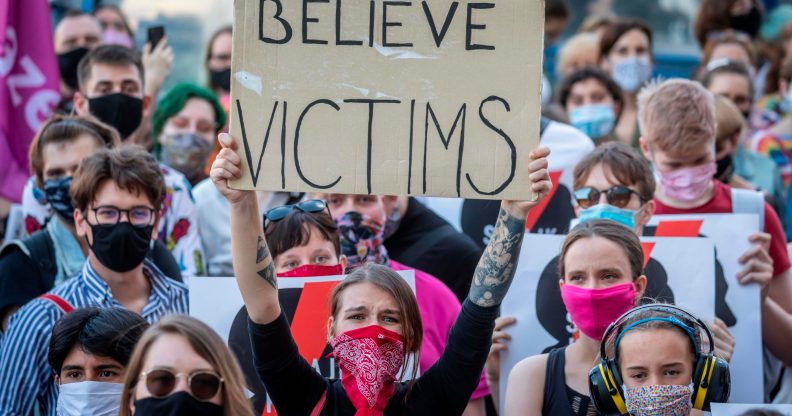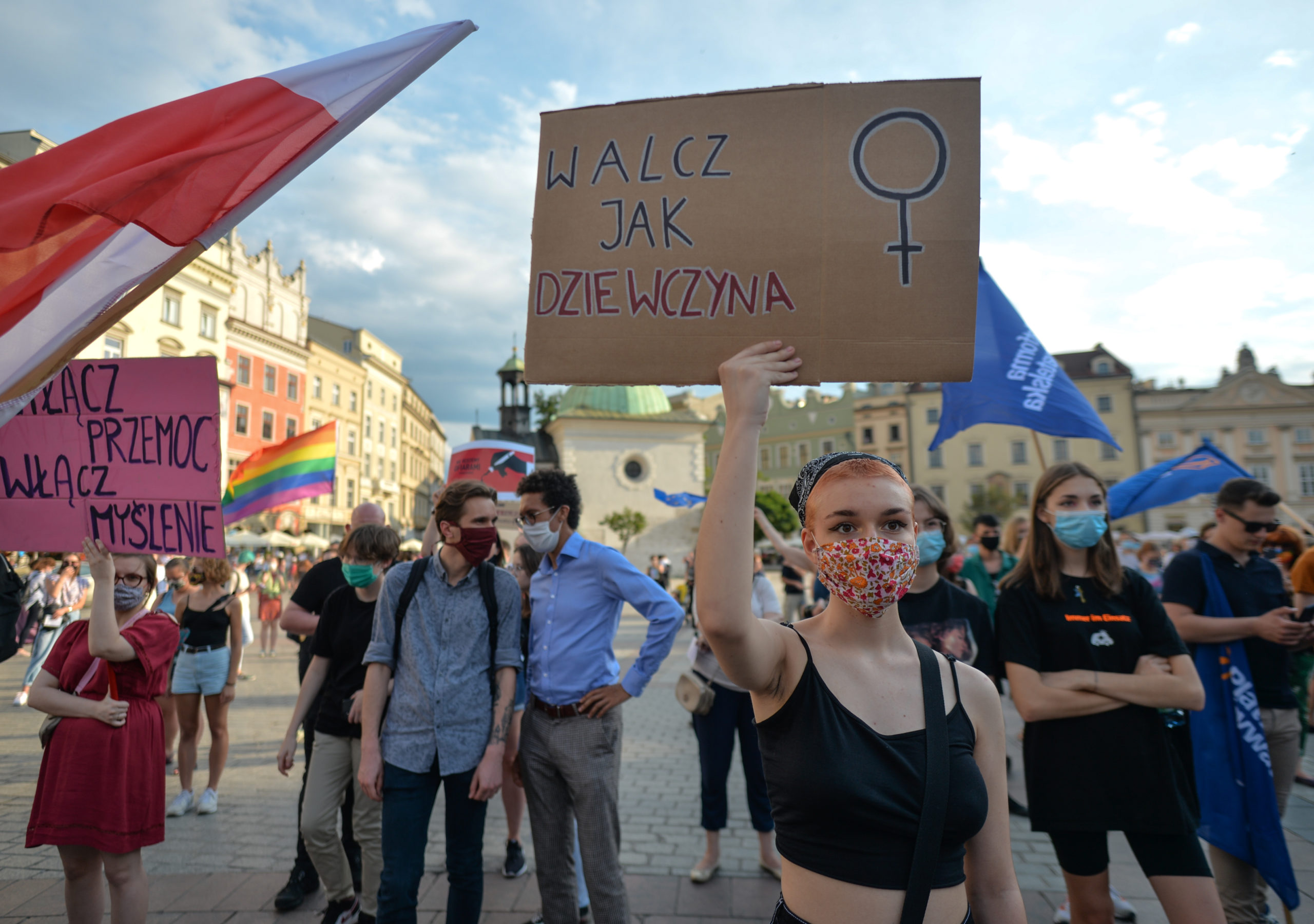Poland pulls out of international treaty on ending violence against women, claiming it ‘justifies gay ideology’

A protester holds a banner reading Believe Victims as she takes part in a protest against the Polish government plans to withdraw from the Istanbul Convention (WOJTEK RADWANSKI/AFP via Getty Images)
Poland has pulled out of the Istanbul Convention, an international treaty on ending violence against women, after the country’s anti-LGBT+ justice minister claims it “justifies gay ideology”.
The nationalist Law and Justice Party minister, Zbigniew Ziobro, vowed to begin the process of withdrawing from the European treaty, ratified in 2015 under the previous government, which sets comprehensive standards to prevent and combat violence against women and domestic violence.
Poland’s justice minister claims domestic violence treaty ‘justifies gay ideology’.
Ziobro, who just last week was making up claims that an EU budget deal would lead to the imposition of same-sex marriage in Poland to inflame opposition, is again fabricating a link between the international treaty and LGBT+ rights.
The minister, who has previously described the treaty as “an invention, a feminist creation aimed at justifying gay ideology”, said Poland would start the process of withdrawal on Monday, claiming it violates the rights of parents and “contains elements of an ideological nature”.
The treaty makes no mention of LGBT+ rights at all, apart from making clear that domestic violence survivors should be provided with support free from discrimination based on personal factors including sexual orientation.
According to the BBC, Ziobro cited “harmful” provisions in the treaty that require schools to teach about gender.
The Istanbul Convention says that schools should teach about “equality between women and men, non-stereotyped gender roles, mutual respect, non-violent conflict resolution in interpersonal relationships, gender-based violence against women and the right to personal integrity”.
Protests were held against the proposed withdrawal in Warsaw and Krakow on Friday and Saturday.

Activists gathered on Friday afternoon at Krakow’s Main Market Square to voice their opposition to the government’s plan to withdraw Poland from the 2011 Council of Europe’s Istanbul Convention on combating domestic violence. (Artur Widak/NurPhoto via Getty Images)
The treaty is a frequent target of homophobic ideologues – with Polish government minister Marcin Romanowski branding it “neo-Marxist propaganda that turns our value system upside down” and claiming “the way to fight violence is not to teach young boys that they can wear dresses and play with dolls”.
No, the Istanbul Convention does not promote ‘LGBT+ ideology’.
The treaty has previously encountered similar attacks in Slovakia, where nationalist politicians claimed the document is “extreme liberalism” that promotes LGBT+ rights.
The frequent fabrications have led the European Commission to produce a fact-checking booklet that challenges the claims about the treaty.
The European Commission document makes clear: “There is no threat to the concept of family. The convention does not regulate family life or structures and states do not have to change the traditional understanding of families.
“Traditions and values are not under threat. The convention only states that traditions, culture or religion cannot be used as a justification for acts of violence against women.
“The word ‘gender’ does not replace the terms ‘women’ and ‘men’, nor does the convention promote any ‘gender ideology’. The word ‘gender’ is used in the convention to emphasise that women are more likely to experience violence because they are women.
“Recognition of same-sex marriages is not in the convention. The convention does not affect national civil law rules on marriage in any way.
“A ‘third gender’ is not introduced by the convention, nor is there an obligation to recognise it. States are only required to protect victims’ rights without discrimination on any grounds, including sex, race, religion, language, age, marital status, sexual orientation, or gender identity.”
Justice minister Zbigniew Ziobro is an extremist when it comes to LGBT+ issues, previously ordering a probe after IKEA fired an employee for saying gay people should be put to death.
His views are not alone in the Polish government, with president Andrzej Duda winning re-election earlier this month after a vicious campaign hinged largely on his opposition to LGBT+ rights.
Homophobia has become a national issue, with more than 100 local regions – comprising nearly a third of Poland – declaring themselves LGBT+ free zones.

